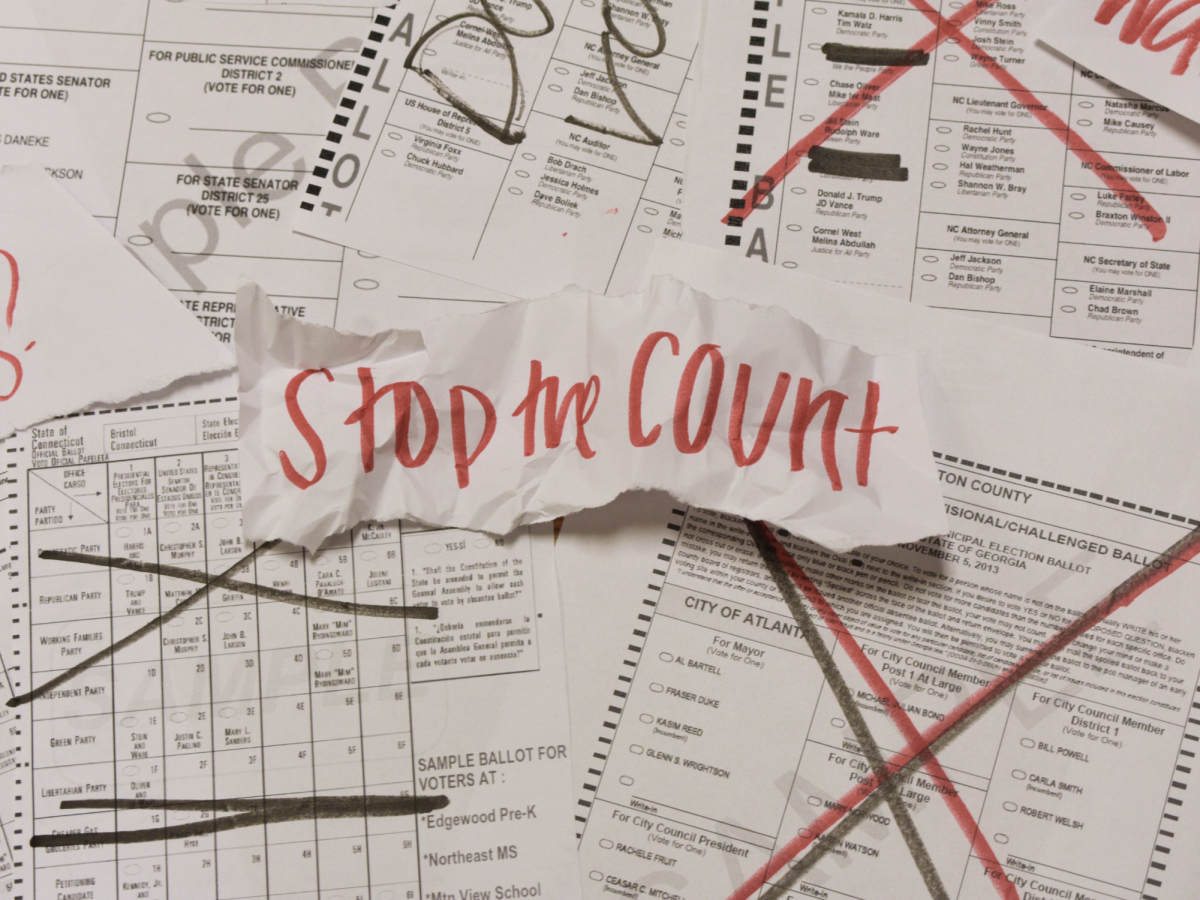As the new year rolls in, American citizens over 18 begin considering the possible candidates for the 2024 United States presidential election. In this process, those planning to vote start to match their values, needs and wants to a hopeful contestant under the Democratic or Republican party system. However, numerous citizens, mainly Democrats, have faced a moral dilemma as the possible Democratic and Republican candidates seem to not fit their values. Considering this uncertainty with candidate choices, various young voters have decided to look toward a third-party candidate to vote for instead.
Based on popularity, several political sources believe that the forerunners for the 2024 presidential election will include former President Donald Trump for the Republican Party and current President Joe Biden for the Democratic Party. However, the public’s issue lies within the popularity of the two candidates in terms of their flaws; on both sides of the spectrum, both Biden and Trump have experienced a lack of likability for their political approaches.
“What tends to happen is people begin to group together in what we call big tent parties. In the U.S., we have big tent parties. This is because in order to get elected, it is easier to win under a big, broad party that can funnel money and support and become a machine for power. It makes it easier under a big team rather than a small independent team,” AP Comparative Government and Politics teacher Carolyn Galloway said.
The majority of left-winged Americans mainly dislike Trump because of his nationalist politics involving anti-immigration and populism. This year, he will attend several legal court cases regarding his 71 criminal charges, which could limit his ability to stand as a candidate if the outcomes do not play in his favor. Recently, Maine and Colorado’s Supreme Courts have ruled that Trump cannot run in their states because of legal troubles.
Biden introduced primarily centrist-left ideals in his promise of the presidency, but numerous citizens feel his policies have remained ineffective. Additionally, certain far left-winged citizens feel as if his policies lean too close to the right, primarily his continuous support toward Israel in the Israel-Hamas war and preventing Mexican immigration into the states. Moreover, both Democratic and Republican voters have expressed concern about Biden’s health because of his old age, possibly leading to poor leadership.
Candidates such as Claudia de la Cruz for the Party for Socialism and Liberation (PSL), independent Cornel West and Green Party candidate Jill Stein have piqued the interest of left-winged individuals for their philosophies surrounding social democracy.
De la Cruz, a theologist and educator, focuses her political principles on the philosophies of the PSL such as working toward funding a socialist revolt against the current democratic system of America. Her goals include building a new economy based on unionization, replacing capitalist institutions with socialist ones, cutting the military budget by 90% and defending the rights of Black and LGBTQ+ individuals.
West, a philosopher and political activist, builds his politics on addressing the struggles of African Americans and other class issues. West originally joined the presidential race under the Green Party but recently left the party to run independently instead.
Stein, an environmental health activist, bases her principles on preventing environmental collapse, fighting for the rights of marginalized communities and supporting Palestine in the Israel-Hamas war. Her main prospects for the presidency include an Economic Bill of Rights that will combat income equality and the creation of a Green Deal to fight climate change.
Robert F. Kennedy Jr., known for his multifaceted politics, will run as an independent candidate. In his campaign, he has appealed to right-winged voters with his anti-vaccine remarks, support of the Second Amendment and indulgence in political conspiracy theories. Still, he labels himself as a centrist in his campaign. January 16, Kennedy announced that he would soon sign paperwork to create a party named “We the People” to secure a ballot in California.
Although America hosts several third-party groups with predominantly far-left ideals, the majority of third-party candidates run under centrist views. No Labels, a third-party group, has risen to prominence this year for its centrist appeal. Numerous Democratic politicians and voters, however, have expressed distaste with the party due to its ability to cause a Biden spoiler or vote split.
“The electoral system in the United States works off of a single member districting system, which means that we divide the territories by constituencies…We usually do this by saying that the person who wins the most votes will win that seat. Generally speaking, that means that the more people you have voting for different parties, the more you fragment the vote. This is called vote splitting…If you have two big teams, and you don’t like either of them, and you would like to vote for the third party, well, the possibility that the candidate you least agree with will win that seat,” Galloway said.
Democrats in support of Biden dislike the idea of voting for a third party because of the possibility of vote splitting or spoiling. Democrats pulling away from Biden in favor of a third-party candidate could result in limited votes for Biden, ensuring a higher chance of Trump gaining the presidency.
Various individuals have continued to support third-party voting, even with the idea of vote splitting. This group believes that the continued support and marketing of the third party, even during close elections, will popularize third parties and abolish the two-party system in further years.
“If you’re voting for a candidate with not much support, it’s likely that the candidate you like least will win that seat. This is why third-party candidates don’t do well in the U.S. There are ways it can be changed, though, over time. On a presidential level, it can be accomplished by reforming the electoral college. This change can begin by using majority rule rather than plurality, which is when candidates win their seats with a 50 percent plus one win. Or, rank-choice voting could also work,” Galloway said.

















